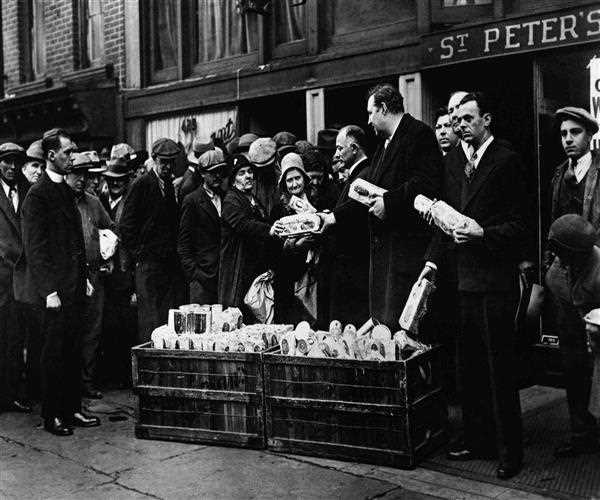The Great Depression was the most exceedingly awful monetary downturn ever of the industrialized world, enduring from 1929 to 1939. It started after the money markets crash of October 1929, which sent Wall Street into a frenzy and wiped out a large number of financial specialists. Throughout the following quite a while, customer spending, and venture dropped, causing steep decreases in modern yield and work as coming up short organizations laid off specialists. By 1933, when the Great Depression achieved its most reduced point, somewhere in the range of 15 million Americans were jobless and almost a large portion of the nation's banks had fizzled.

All through the 1920s, the U.S. economy extended quickly, and the country's aggregate riches dramatically increased in the vicinity of 1920 and 1929, a period named "the Roaring Twenties."
The stock exchange, focused at the New York Stock Exchange on Wall Street in New York City, was the scene of careless hypothesis, where everybody from mogul head honchos to cooks and janitors emptied their investment funds into stocks. Therefore, the share trading system experienced quick extension, achieving its crest in August 1929.
By at that point, creation had just declined and joblessness had risen, leaving stock costs substantially higher than their genuine esteem. Moreover, compensation around then were low, buyer obligation was multiplying, the horticultural part of the economy was battling because of a dry spell and falling nourishment costs, and banks had an overabundance of extensive credits that couldn't be exchanged.
The American economy entered a gentle subsidence amid the late spring of 1929, as buyer spending impeded and unsold merchandise started to heap up, which thus hindered processing plant generation. In any case, stock costs kept on rising, and by the fall of that year had come to stratospheric levels that couldn't be defended by expected future profit.
Securities exchange Crash of 1929
On October 24, 1929, as apprehensive speculators started offering overrated shares as a group, the share trading system crash that some had dreaded occurred finally. A record 12.9 million offers were exchanged that day, known as "Dark Thursday."
After five days, on October 29 or "Dark Tuesday," somewhere in the range of 16 million offers were exchanged after another rush of frenzy cleared Wall Street. A huge number of offers wound up useless, and those speculators who had purchased stocks "on edge" (with obtained cash) were wiped out totally.
As customer certainty vanished in the wake of the share trading system crash, the downturn in spending and venture drove manufacturing plants and different organizations to back off generation and start terminating their laborers. For the individuals who were sufficiently fortunate to stay utilized, compensation fell and purchasing power diminished.
Numerous Americans compelled to purchase using a credit card fell into an obligation, and the number of dispossessions and repossessions climbed consistently. The worldwide adherence to the highest quality level, which joined nations around the globe in a settled money trade, helped spread financial hardships from the United States all through the world, particularly Europe.
Bank Runs and the Hoover Administration
In spite of affirmations from President Herbert Hoover and different pioneers that the emergency would run its course, matters kept on deteriorating throughout the following three years. By 1930, 4 million Americans searching for work couldn't discover it; that number had ascended to 6 million out of 1931.
Then, the nation's modern generation had dropped considerably. Bread lines, soup kitchens and rising quantities of vagrants turned out to be increasingly normal in America's towns and urban areas. Agriculturists couldn't stand to collect their yields and were compelled to abandon them decaying in the fields while individuals somewhere else starved.